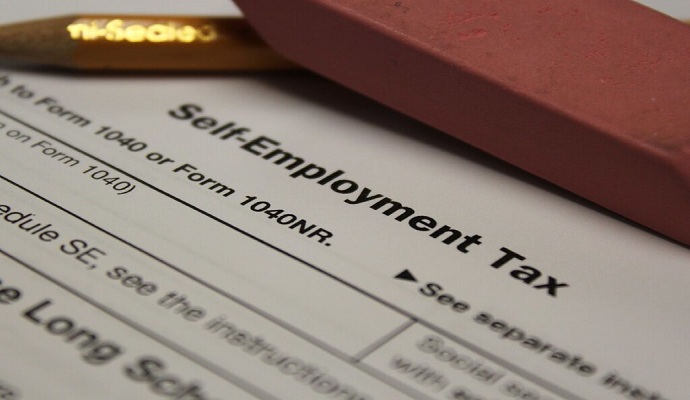
Each quarter, business owners temporarily set aside the rush of being their own bosses to hunt for any self-employed tax tips they can find. It’s scary, unpredictable, and expensive to run a business when you don’t do the proper planning.
In the following article, we’ll be discussing the five best tips to reduce self-employment tax. But first, let’s cover what you need to do before you begin.
Prep Work
Take some time to track every revenue stream you have. Come up with the closest estimate you can based on deposits, 1099 forms, and other proofs of revenue.
And make sure you can show proof of income in an acceptable manner. This article can help simplify the process.
Running your own business can get rather complicated, but most small business owners should go the Schedule C filing route. Read up on what that is, and consult with your tax accountant before deciding on something more advanced.
Once you have your income and method of filing figured out, it becomes easier to plan a strategic attack. Here’s where you should focus.
- Max Out Your Retirement Account
W2 employees usually have access to a pretax retirement account to which they can contribute. Small business owners typically go the IRA route.
There are two primary IRAs in which to invest. The Roth IRA is taxable upfront but everything you pull out in retirement is tax-free. The tax-deferred IRA is not taxed upfront but then taxes are pulled during retirement.
Each of these have their advantages. Namely, contributing to each one will reduce self-employment tax by lowering your adjusted gross income.
- Deduct Medical
Some self-employed tax advice business owners often overlook is the break they get on medical. Yes, healthcare costs are astronomical. And unless you qualify for a subsidy, you’re on the hook for the full premiums.
But the good news is those hefty premiums can greatly reduce the amount in taxes that you have to pay by lowering your overall income. The insurance can be in your name to do it, and it covers your spouse and any children on the policy as well.
- Always Go with Business Instead of Itemized Deductions
Another valuable bit of tax advice for self-employed persons: business deductions over itemized deductions. What’s the difference?
Itemized deductions are calculated after adjusted gross income is set. The noticeable tax impact is minimal compared to business deductions that directly reduce your adjusted gross income by the full amount.
- Give to Charities
The best self-employment advice you’re likely to receive for lowering your income is to restructure how you donate to charity. Of course, this idea may be unpalatable if you like giving anonymously. But it’s certainly worth considering.
Here’s what you do. Give to a nonprofit organization of your choice. But do it in exchange for advertising.
Setting it up that way will allow you to significantly reduce taxable income. It does this by essentially turning your kind-heartedness into an advertising expense.
- Follow the Rule of 30 Percent
This isn’t so much a tip for how to lower your self-employment tax as it is a way to not get behind. Pull 30 percent of every dollar you make into a separate tax account and forget about it. As you employ the other tips on this list, you’ll have more than enough to pay the taxes and may even get a little money in your pocket at the end of the tax year.
Avoid Overpaying with These Self-Employed Tax Tips
Hopefully, these self-employed tax tips will help ease your mind as filing season approaches. Best of luck! And for more business tax advice, check out more of our posts on the topic.









Let us ask important question, if employer pays for health insurance is it taxable?
Maybe you want to talk about employer health insurance tax deduction and employer paid health insurance for retirees taxable..thanks!